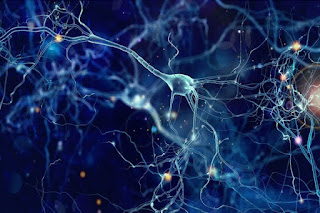"What we know now is that no two human brains are wired exactly the same and experience shapes us all differently. Its the final frontier, our own internal frontier and we are just now beginning to see all the patterns" writes neurologist Frances.E Jensen in her book "The teenage brain, A neuroscientists guide to raising adolescents and young adults".
She wonders further: "When i look at the brain cells under a microscope, I think of the billions of neurons that are interconnected and how we are still trying to figure out the wiring"
Dr Jensen wrote this book not only as a doctor but also as a mother to two teenage boys. Her spatial intelligence enhanced the visual imagery inside and every time she dealt with teenage behaviour she would imagine the physical reality of the wires and bleeps inside. The book makes an interesting read for any mother struggling with her teens.
What intrigued me most and made me stop and reflect was the line I quoted in the beginning. The fact that no two human brains are wired exactly the same made me pause hard. Why does experience shape us all differently? "the internal frontier" as she calls it is the real challenge then.
This internal as a Muslim has a very deep reality for us. Something we call "Fitrah". The fitrah is a mould Muslims believe Allah swt sets the human soul in and then guides that Fitrah to navigate different stages of development through the Quran.
This is where the role of contemporary pedagogy can actually help in nurturing the fitrah. Sadly though most contemporary pedagogy focuses on shaping the experience and has failed to nurture the fitrah. The recent debate ensuing on the content quality of the single national curriculum is of little consequence if again we fail to address the importance of nurturing the fitrah and focus instead merely on shaping the experience.
Nurturing the fitrah is a holistic process. It requires nurturing the environment. Structuring the cues and providing a committed facilitator.
We have yet to foster this flexible and holistic culture of learning and teaching in Pakistan. Hoping that the single national curriculum is not an attempt to enforce conformity but an effort to equip all with the universal cues the holy Quran offers us.
Saima Sher Fazal

Comments